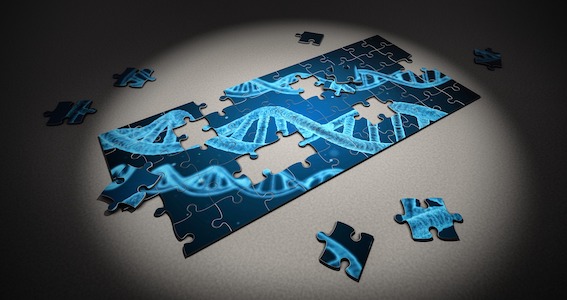Novel genetic cause for immunodeficiency identified
A group of Nordic researchers has discovered a novel immune deficiency disease affecting the regulation of the immune system. A mutation in the IKZF2 gene was identified in a Finnish family with recurrent infections and signs of immune overactivation. The results provide a basis for a deeper understanding of the molecular mechanisms behind activation and maturation of T cells and will aid the diagnosis of rare inborn errors of immunity.

Inborn errors of immunity disrupt the body’s ability to defend itself against infections and may also predispose patients to immune dysregulation and cancer . Various genetic defects can cause these rare diseases, and the underlying mutation remains unknown for many patients.
A study co-led by Eliisa Kekäläinen and Markku Varjosalo from the University of Helsinki and Janna Saarela, currently from the Centre for Molecular Medicine Norway (NCMM), University of Oslo, has identified a novel immunodeficiency disorder. The results were published in Science Immunology.
In this study, genetic diagnosis was pursued in two patients, a father and a daughter, due to their susceptibility to infections, hypogammaglobulinemia and mucosal ulcers.
By utilizing modern DNA sequencing methods, the group was able to identify the genetic cause for the symptoms. The defective gene, IKZF2, codes for a protein called Helios. This protein is a member of the Ikaros family of transcription factors and known to regulate activation and maturation of T cells.
“This was an exciting finding since this is the first time that IKZF2 gene mutations have been shown to lead to immunodeficiency in humans”, said Meri Kaustio, a FIMM PhD student who performed the sequencing analyses.
Another report from an Austrian team, inspired by the preliminary results of the Finnish researchers and published in the same issue of Science Immunology, provides further support for the finding.
“The culprit mutation decreased both the expression level of Helios and protein-protein interactions with its most important protein partners”, said the first author of the study, Iivo Hetemäki from the Kekäläinen group.
Detailed analyses of patients’ immune systems showed that their T cells behaved abnormally and showed signs of chronic activation.
“This study broadens the expanding spectrum of human primary immunodeficiencies. It confirms many earlier findings in Helios knock-out mouse models, but also adds new insights to the role of transcription factor Helios in regulating the immune system”, says Dr. Janna Saarela, Director of the Centre for Molecular Medicine Norway (NCMM).
Original publication: Hetemäki I, Kaustio M, Kinnunen M, Heikkilä N, Keskitalo S, Nowlan K, Miettinen S, Sarkkinen J, Glumoff V, Andersson N, Kettunen K, Vanhanen R, Nurmi K, Eklund KK, Dunkel J, Mäyränpää MI, Schlums H, Arstila TP, Kisand K, Bryceson YT, Peterson P, Otava U, Syrjänen J, Saarela J, Varjosalo M, Kekäläinen E. Loss-of-function mutation in IKZF2 leads to immunodeficiency with dysregulated germinal center reactions and reduction of MAIT cells. Sci Immunol. 2021 Nov 26;6(65):eabe3454. doi: 10.1126/sciimmunol.abe3454.
CONTACT
Janna Saarela
Director, NCMM
j.s.saarela@ncmm.uio.no
Eliisa Kekäläinen
Translational Immunology Research Program, University of Helsinki
eliisa.kekalainen@helsinki.fi